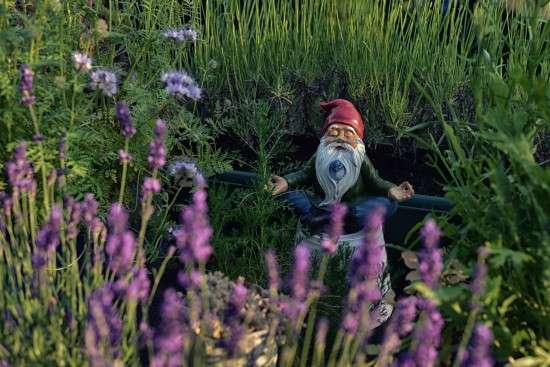Since her 2009 diagnosis of multiple sclerosis, Dr. Lisa Doggett has come to realize MS is no excuse to avoid challenges. Instead, it has propelled her to run two marathons, hike the Inca Trail to Machu Picchu, and complete a 168-mile bike ride to raise awareness for MS. She is currently working on a memoir about her journey from doctor to patient.
I’m still a little embarrassed to say I meditate. It sounds weird, too alternative, uncool. My hesitation is probably left over from my years of resistance to meditation, to my prior judgment without really knowing what it was.
Like a lot of people, much of my life has been defined by accomplishments. We are programmed to see our lives as milestones on a timeline: graduations, completed projects, career advancements, children’s birthdays.
Even my days are programmed, broken into tangible steps that I can check off my list. Here is today’s list (a Saturday): Set up new work computer, go to the gym, finish travel planning for next week, make sure Clara gets packed for Girl Scout Camp, water the garden, pick up meds at the pharmacy, tackle e-mail.

When someone says, “how was your day?” I often reflect back on the “accomplishments” of the day. “It was good,” I might say. “I turned in the final report on the immunization project. I also managed to get Ella’s dance class rescheduled and make granola.” Or, “It was totally frustrating. I didn’t get a damn thing done!”
Meditation is the opposite of the rest of my life. It is not productive. It is not an accomplishment. It is not even a planning period for future productive endeavors. It just is.
I started to meditate around the time that I accepted the position as medical director at a clinic for immigrant families several years ago. I knew that my job would be a huge challenge and soon would swallow me whole. I needed a counterbalance to the chaos.
Meditation did that for me. It became a resting place, a centering, a grounding in the midst of tremendous busy-ness and stress.
Knowing I needed instruction and guidance, I started by taking a class from Geeta Cowlagi (http://www.joyfulliving.us/) here in Austin. Geeta’s eight-week class, Mindfulness-Based Stress Reduction (MBSR), was eye-opening for me (though, naturally, I spent much of it with my eyes closed, meditating).
A big revelation was that I could meditate! Whenever I had tried before to sit and clear my mind, I couldn’t do it; intrusive thoughts left me reprimanding myself for my lack of focus and discipline to meditate the “right way.”
But Geeta taught me, with her infinite warmth and wisdom, to acknowledge those thoughts and just come back to the present moment. The moment when I realized my thoughts had pulled me away to worry about the clinic, or the kids, or my grocery list was actually a mindful moment and a chance to refocus and try again. There is no right way; there is no judgment.
I learned that meditation does not have to be done sitting on a cushion in a lotus position with open palms resting on each knee. A mindfulness practice can be done anytime, anywhere. I can meditate while walking, stretching, running, cooking, brushing my teeth. I can shift inward and focus on my breath while standing in line or waiting in traffic. The result is more peace, calm, focus. It’s subtle, but it’s real.
I’ve tried out several meditation apps over the years, and my favorite is Insight Timer. It is free and offers a vast array of guided meditations of varying lengths.
But my daily meditation practice doesn’t even require an app. I set the timer on my phone and focus on my breath. Just six minutes, every morning. It helps to set up my day and reduce my MS symptoms. At bedtime, I do a short body scan meditation. Again, it’s just a few minutes, but I sleep so much better.
Would meditating more be better? Probably. Some meditation teachers advocate for at least 45 minutes a day. Should I sit cross-legged with my back straight? Should I be able to focus for more than a few seconds without intrusive thoughts? Possibly. But as Geeta would remind me, there are no “shoulds” in meditation. I’ve made a short meditation practice part of each day, and I’ve noticed some positive benefits. For me, that is enough.




